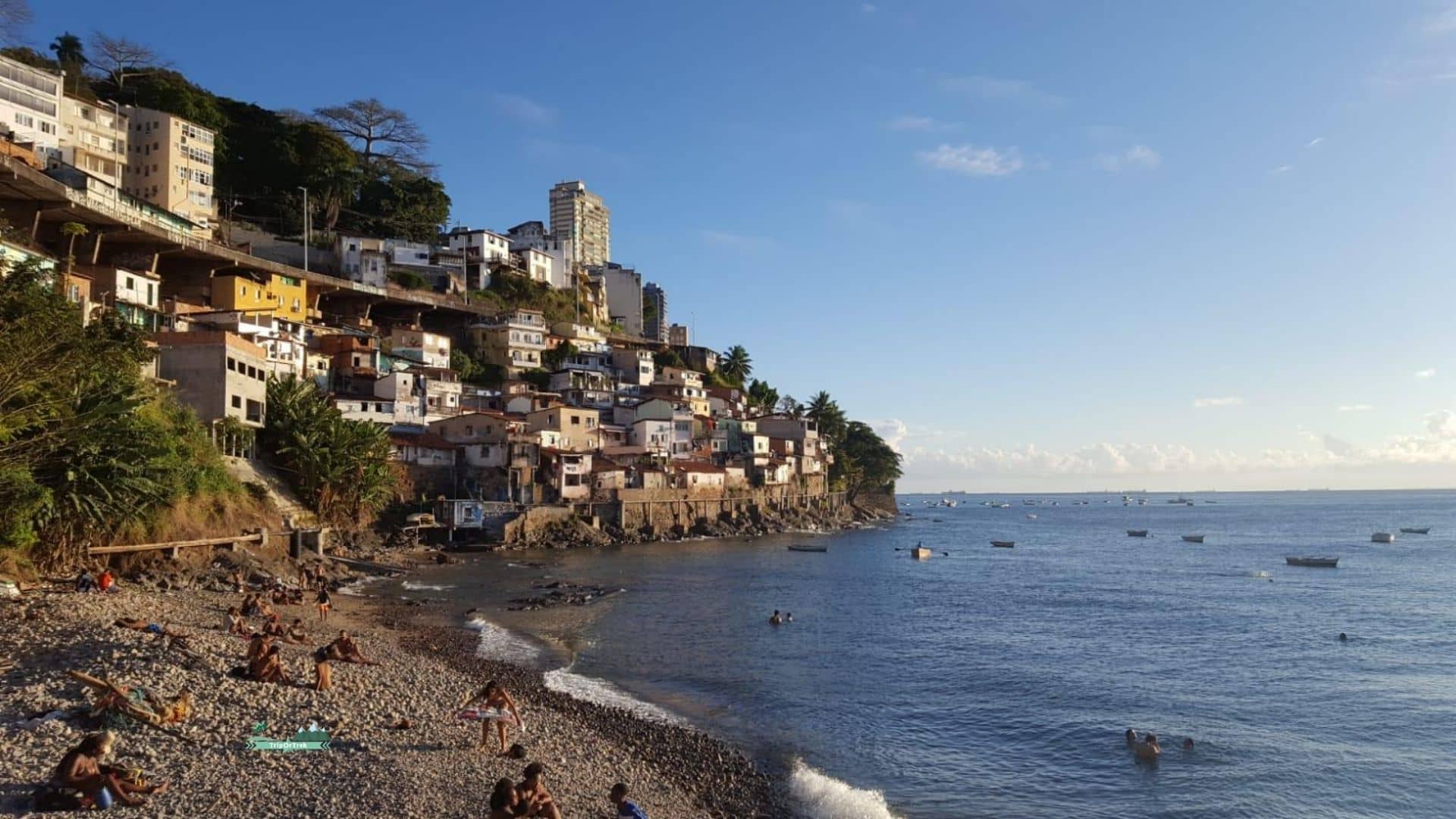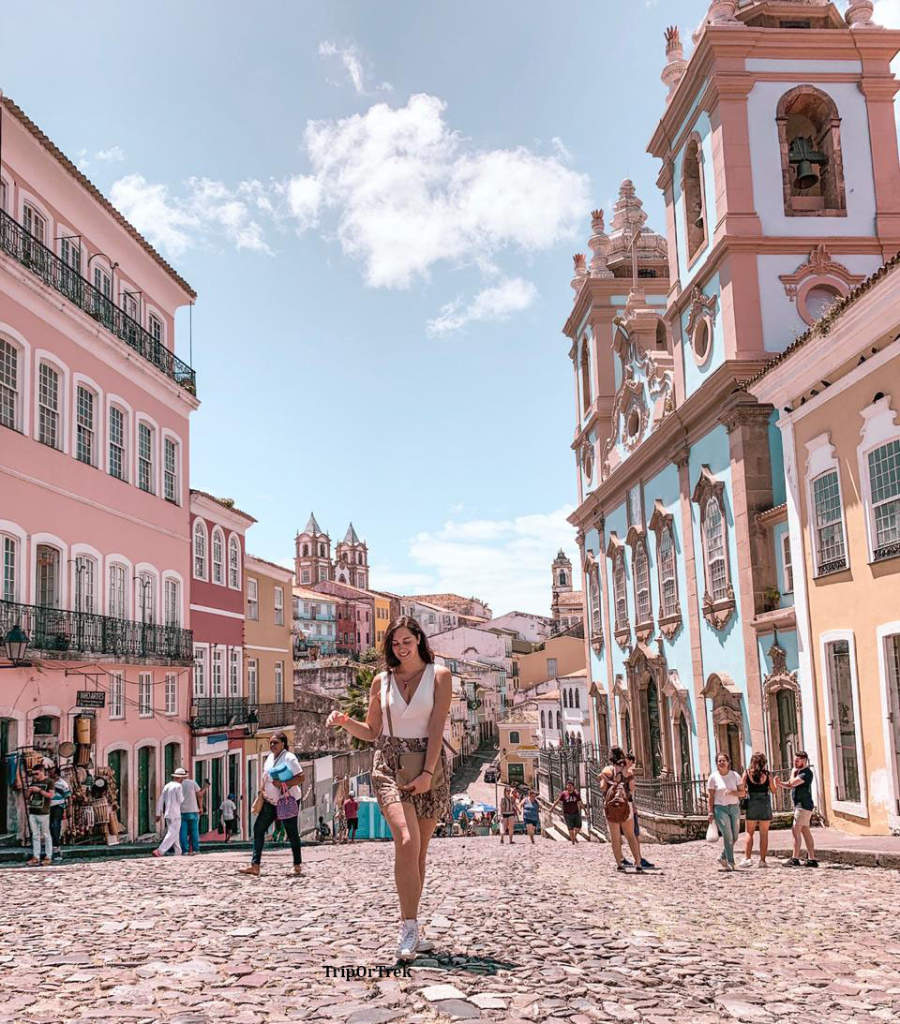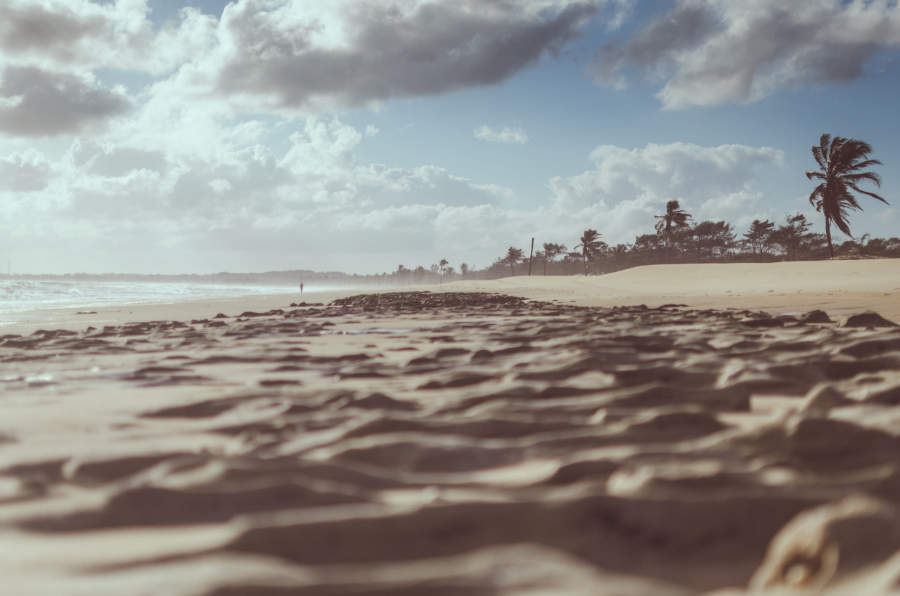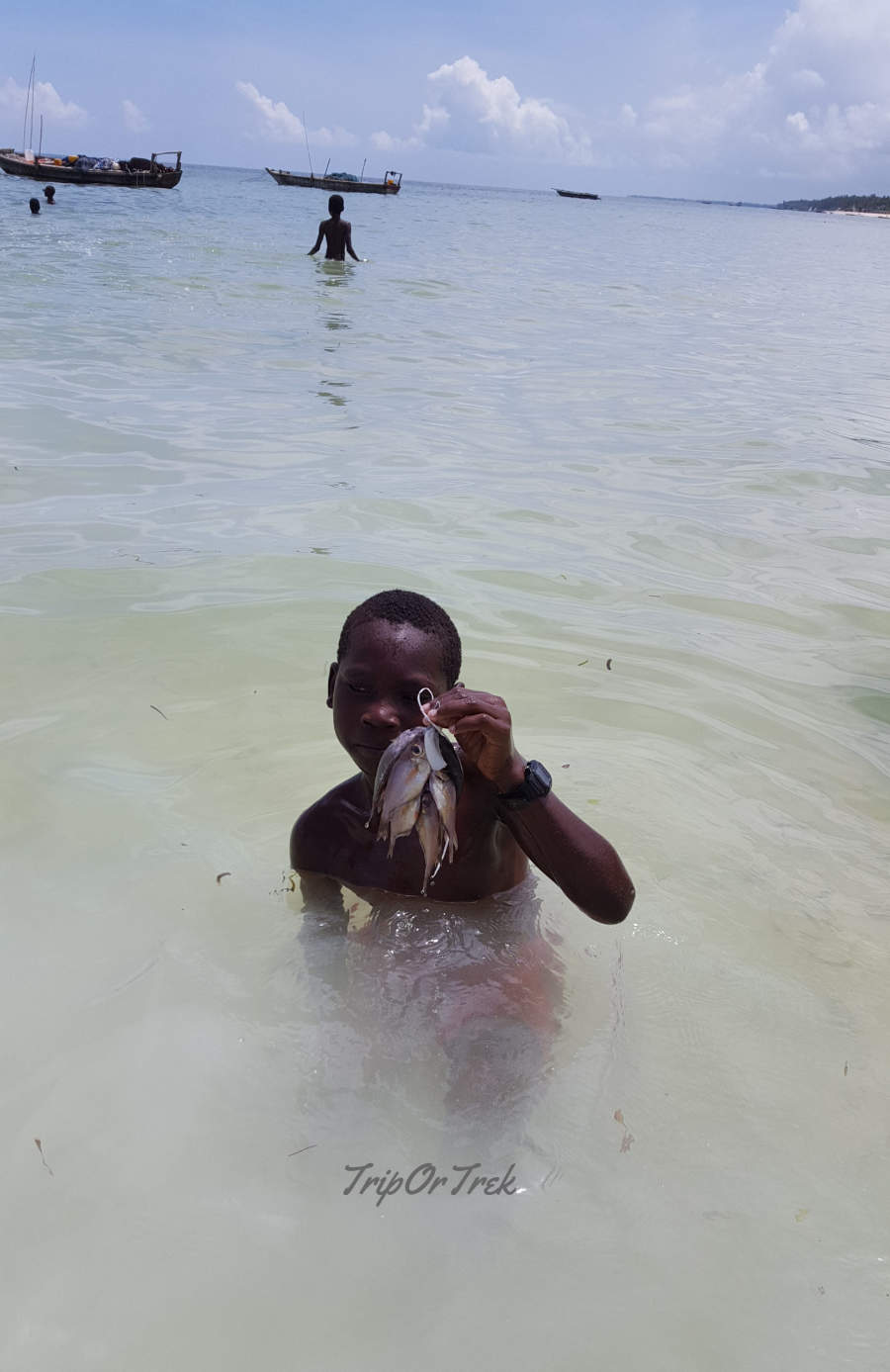
Survival. Our innate ability to learn to live in difficult environments and conditions using only our skills. Our creativity. Our intellect.
It is a concept on which I have reflected a lot on the island of Zanzibar. From dawn to late night, even a few steps from the most luxurious resorts, people survived with what nature gave. They survived with ingenuity, intuition, creativity and the will to make a virtue of necessity.
Algae
Table of Contents
When the first rays of the sun lit up the beach, women in brightly colored clothes slowly emerged from the villages to get closer to the sea.
The low tide left a world discovered, made of starfish and small forests of algae, which surfaced on the surface attracted their attention. With precise movements, they bent to pick up the green sprouts that then hung from their robes until they completely covered the body.
Thus began the journey to the beach where the second part of the work took place: the drafting of algae on the dryers. Simple wooden beams linked together with ropes in which the algae were laid out in the sun and left to dry until they turned brown.
“What are you doing with algae?”
«We resell them – they answered me – they are good for both skin care and cooking».
While mothers collected algae, their children looked for crabs and mollusks to guarantee the meal for the whole family.
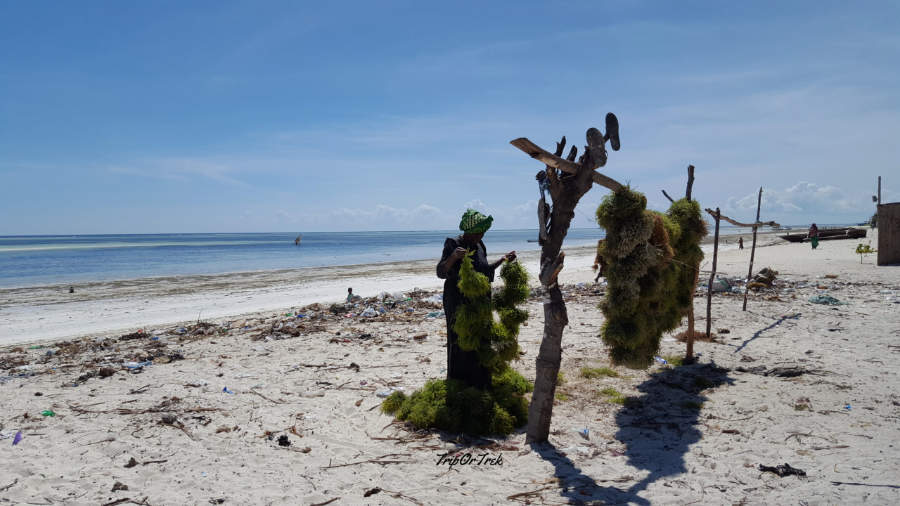
The School
Not far from the dryers of algae stood a house of raw bricks from which came an intense shout of children. It was the village school.
Still motionless on the door of the structure there were other children who, to my question, “why don’t you go to school?” They replied, “we can’t”.
The heat was stifling and in the largest room, sitting on the ground with their uniforms, there were a hundred pupils with big and curious eyes. The little girls wore the veil. Children’s shirt. They waited for orders from the teacher. As a gift, we had some notebooks and pencils that were greeted with many smiles and a song in English.
“Outside the school, there are other children, why do not they take classes?”
“They can’t pay for school”
“How much does it cost to come to school?”
“A month costs 5 dollars, we have two classes and the children attend when families can pay”.
Leaving the building I had only one thought in mind: the greatest gift that a country can make to its children is to give it a future by guaranteeing everyone education.
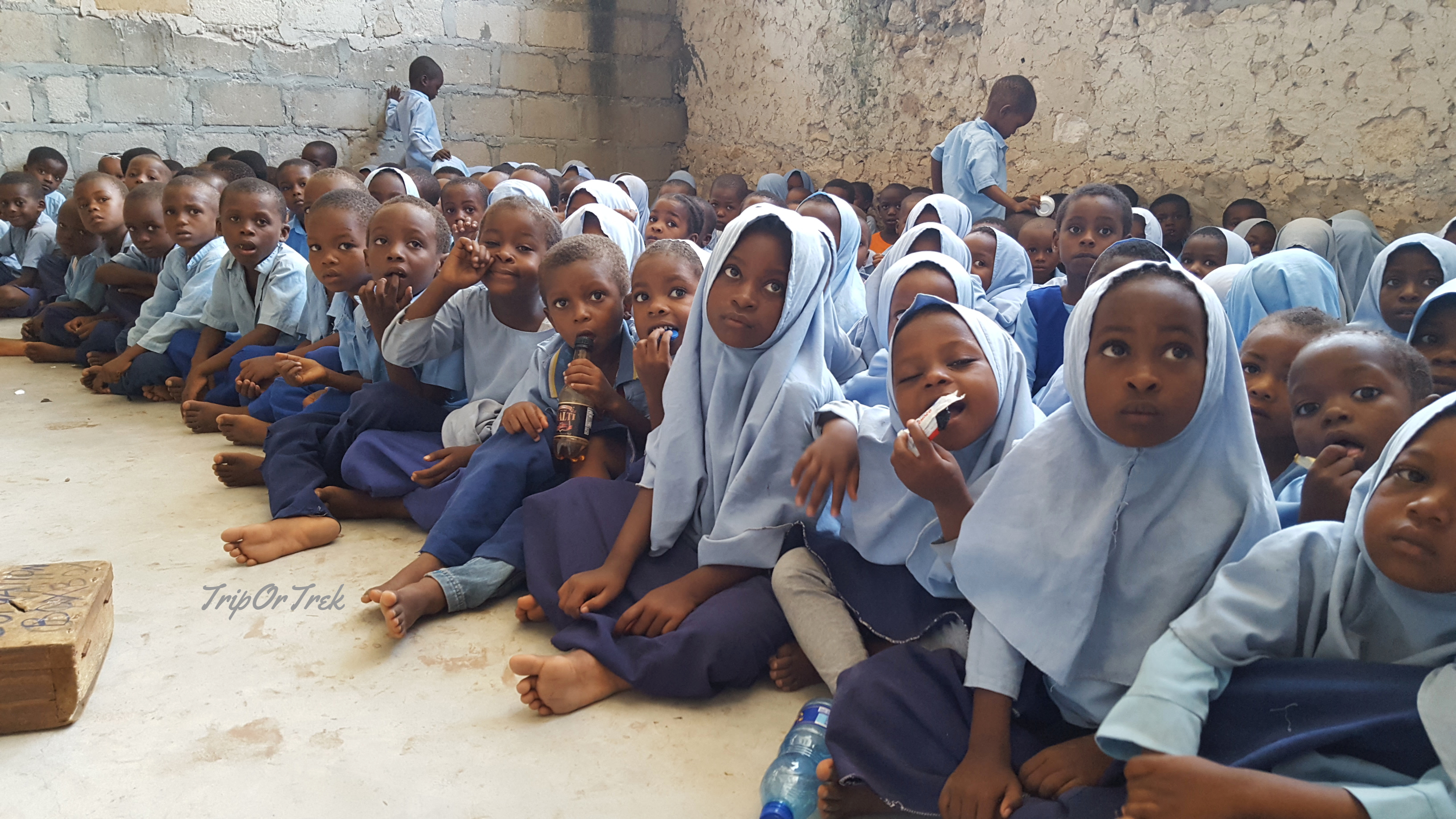
The Beachboys
Every walk on the beach was transformed into a meeting with local vendors: the famous beachboys. They were divided into two categories: the Muslim village dwellers and the Masai, boys of Christian religion belonging to an ethnic group of shepherds whose villages of origin are in the center of Tanzania. The proposals were many: from bracelets, ladles for the kitchen, through paintings, sarongs, key rings to guided tours throughout the island.
“Hello, how are you? What do you tell me today? “
“Tell me how you learned Italian so well?”
«Talking to tourists. You know to sell my bracelets I have to speak many languages. If foreigners buy the things of my stall then I could eat»
“Do you only do this job?”
“There are many Masai here in Zanzibar, we work during the sun season with stalls or we do shows with our dances in the resorts and then when it rains we return to Tanzania.”
“What do you do in Tanzania?”
“I raise the goats or sheep in the savannah.”
“Have you ever faced a lion?”
“In our villages when boys become men they have to pass tests: the first isn’t to move while they make circumcision, the second is to survive 40 days in the savannah and the third is to kill a lion. When we kill the lion we can go back to the village and we’re warriors”.
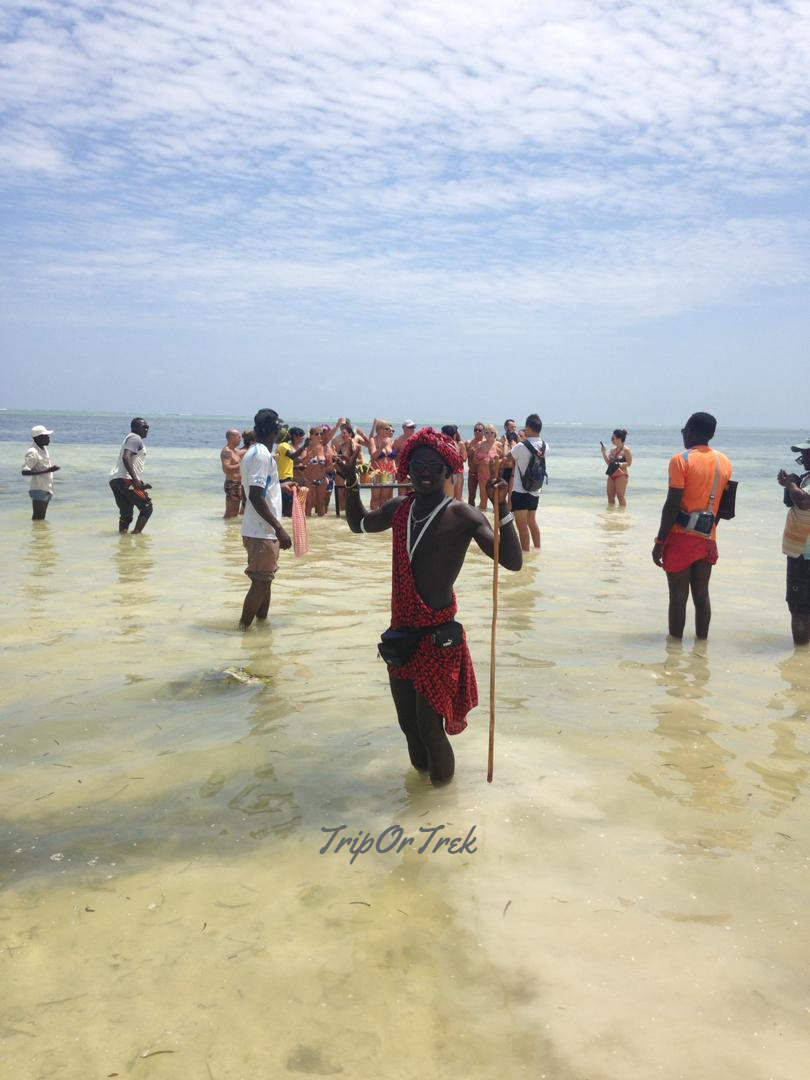
The fishermen
At nightfall the same ritual was repeated every day: in the starry nights of Zanzibar, small electric lights made their way to the beach to reach the sea and the wooden boats. It was the fishermen who came out of the villages with their nets, to venture out into the sea and start a night of work.
They left silently and returned when the sun was already high on the horizon, triggering chaos among the villagers who ran by the sea to try to buy the best fish.
Arranged the nets and put their feet on the ground, exposing the fruit of their work in small buckets, giving rise to long bargaining on prices. The children imitated them by immersing themselves in water to catch small fish that then exhibited proudly imagining the day when they too, like their fathers, could work on large wooden boats. Why survive also means this: imagine a better future and engage every day to achieve dreams.
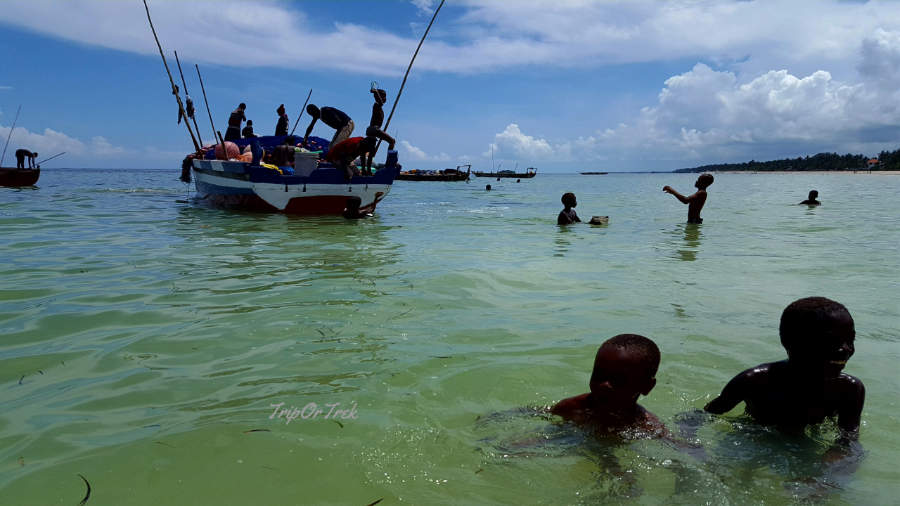

Viaggio e racconto il tuo territorio scrivendo di turismo, marketing territoriale e storytelling nel mio blog TripOrTrek



